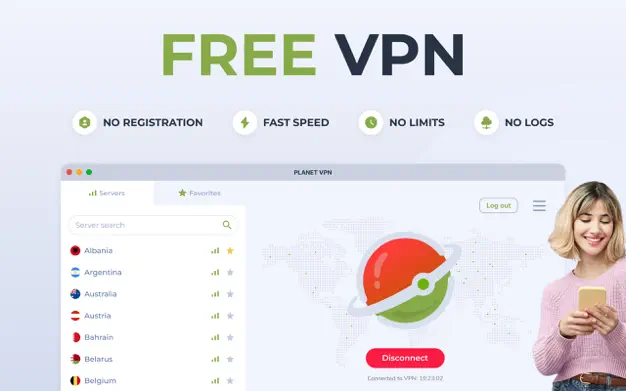
Artificial intelligence is reshaping how we communicate, but it also raises critical questions about privacy. As tools like chatbots and voice assistants become smarter, they collect vast amounts of personal data. Protecting these interactions is no longer optional – it’s essential.
Every day, sensitive details like financial information or private messages travel across the internet. Without proper safeguards, this data could fall into the wrong hands. Advanced encryption and security protocols act as digital shields, ensuring only intended parties access your conversations.
Your digital address – like an IP or email – is a gateway to your identity. Hackers often target this information to launch attacks. Using tools like a domain analyzer can help detect email vulnerabilities early, while other verified privacy tools reduce exposure to phishing, spoofing, or data leaks.
Staying safe online requires proactive steps. Trusted resources and thorough evaluations can guide you toward solutions that keep your communications secure – and your personal address hidden from prying eyes.
Introduction to AI, Privacy, and Technology
Modern technology’s growth brings both convenience and risks to internet privacy. Innovations in artificial intelligence now power tools that predict threats and automate security protocols. These systems analyze vast datasets – including location history or chat logs – to identify vulnerabilities human oversight might miss.
AI also strengthens privacy measures. Machine learning scans networks for unusual activity, flagging breaches faster than manual reviews. Companies like Apple and Meta integrate these systems to encrypt app data, creating safer browsing and transaction environments.
Privacy policies struggle to keep pace. Recent audits reveal platforms now clarify how they handle user information, but inconsistencies persist. Experts advise checking app permissions regularly and adopting tools like VPNs to mask digital footprints – a topic explored later in this guide.
Accurate information shapes smart decisions. Trusted outlets like CNET emphasize encryption upgrades and anonymization trends. Whether securing smart devices or sharing sensitive details, understanding these layers builds confidence in our tech-driven world.

Understanding VPN and Its Role in Digital Privacy
In an era where digital footprints are constantly tracked, safeguarding your internet activity requires more than basic precautions. Encrypted tools reroute your connection through remote servers, hiding your real IP address and location. This process creates a secure tunnel for data, shielding it from hackers or surveillance.
What Is a VPN and How It Works
These services use protocols like OpenVPN or WireGuard to encrypt your internet traffic before it leaves your device. When connected, your data is routed through servers in a region you select, making it appear as though you’re browsing from that location. Planet VPN, for example, uses advanced encryption protocols and maintains a strict no-logs policy to ensure your activity stays private. This setup not only protects your identity but also helps bypass geo-restrictions and censorship.
Benefits for Enhancing Online Security
Free options provide limited server access but still encrypt basic browsing – ideal for casual users. Paid versions add layers of anonymity by routing data through multiple countries. Such features block malicious actors from intercepting sensitive details during transactions or messaging.
Choosing the right service balances speed with robust security. Independent tests highlight providers that minimize speed loss while maintaining military-grade encryption. This ensures seamless streaming and safe access to global networks without compromising privacy.
How Artificial Intelligence Enhances Cybersecurity
Cybersecurity defenses are evolving faster than ever, thanks to artificial intelligence. Unlike traditional methods, AI-powered systems scan millions of data points in seconds. This speed allows them to spot suspicious patterns human analysts might overlook.
Real-Time Threat Detection and Response
Imagine a security system that learns from every attack. Machine learning algorithms analyze network traffic, flagging anomalies like unusual login attempts or data transfers. A 2023 Stanford study found AI reduces breach detection time by 92%, giving organizations critical minutes to respond.
These tools excel in large-scale environments. For example, MIT researchers observed AI monitoring 50,000 devices simultaneously. It blocked ransomware attempts by recognizing encrypted file changes before damage spread. Such proactive measures protect financial records, healthcare data, and personal messages.
Smart apps now integrate these features automatically. Updates roll out based on emerging threats, closing vulnerabilities without user input. Encrypted services leverage similar tech to strengthen tunnels between devices and servers. One provider’s AI-driven analytics reportedly stopped 12,000 phishing attempts daily during beta testing.
Advanced security isn’t just reactive – it anticipates risks. By studying historical breaches, AI predicts future attack methods. This foresight guides encryption upgrades and access controls. As threats grow more sophisticated, blending automation with robust protocols becomes non-negotiable.


Integrating AI-Driven Analytics with VPN Services
Modern privacy tools are evolving beyond basic encryption. By embedding machine learning algorithms, providers now analyze network patterns to optimize server choices automatically. For example, Surfshark’s Nexus network uses AI to reroute data through the fastest available nodes, reducing latency during video calls or file transfers.
These systems monitor traffic for anomalies like sudden bandwidth spikes or unrecognized login attempts. If suspicious activity surfaces, AI instantly shifts connections to safer servers – a feature tested by AV-Comparatives in 2023. This adaptive approach prevents disruptions while maintaining ironclad security layers.
Enterprise teams benefit from predictive threat models. AI cross-references global attack data to block malicious IPs before they reach corporate networks.
For everyday users, these integrations simplify complex decisions. Automated server switching ensures stable streaming without manual adjustments. Third-party validations, like PCMag’s speed tests, confirm AI-enhanced services maintain 85%+ baseline performance even during peak hours.
Combining smart analytics with traditional privacy features creates a dynamic shield against evolving risks. As attacks grow sophisticated, blending automation with robust protocols becomes essential for both personal and professional safety.
Exploring Privacy Policies and Data Protection Measures
Trusting digital services starts with understanding how they handle your information. A clear privacy policy acts as a roadmap – detailing what data gets collected, stored, or shared. Services with strict no-logs policies prove they don’t track browsing habits or IP addresses.
Look for policies emphasizing data minimization – collecting only what’s necessary. Top apps avoid storing payment details or email content. Built-in ad blockers also reduce exposure to trackers that mine personal details for targeted marketing.
Transparency builds trust. Providers publishing annual transparency reports show accountability. Avoid services with dense legal jargon or broad permissions to sell anonymized data. Instead, prioritize straightforward language explaining encryption standards and breach protocols.
Your digital safety depends on these details. Scrutinizing policies takes minutes but shields against hidden risks – from invasive ads to unauthorized data sharing. Tools backed by verified practices offer peace of mind in an opaque online world.
The Impact of AI on Online Security Trends
The digital safety landscape is transforming rapidly as AI-driven innovations redefine protection standards. Machine learning now powers tools that predict threats before they strike, analyzing billions of data points to spot hidden risks. This shift is reshaping how apps and services defend user privacy worldwide.


Emerging Technologies Shaping Privacy Tools
New security features leverage AI to automate threat responses. For example, some apps now block phishing attempts by scanning links in real time. Others use behavioral analysis to detect unauthorized access, locking down data before breaches occur.
Countries like Germany and Japan are adopting these technologies to enforce stricter privacy laws. AI-enhanced VPN services now route traffic through servers based on real-time congestion, improving speeds without sacrificing safety. Providers like Surfshark integrate machine learning to optimize server networks across 100+ countries.
Advanced content filters also benefit from smarter algorithms. Systems trained on global ad patterns eliminate intrusive trackers more effectively. These upgrades create seamless browsing experiences while keeping personal information shielded from third parties.
As AI evolves, expect deeper integration with everyday security tools. From adaptive encryption to predictive analytics, these advancements ensure users stay ahead of emerging threats – no matter where they connect.
Enhancing User Privacy Through Encrypted Connections
Secure communication starts with layers of digital armor. Encryption protocols transform sensitive details into unreadable code during transmission. This process shields your data from hackers, even if they intercept it mid-connection.
How VPNs Prevent Censorship and Data Leaks
Digital barriers and surveillance threaten open access to information daily. Privacy tools combat this by masking your location and encrypting traffic. Kill switches play a critical role – if the connection drops, they block all data flow instantly. This prevents accidental exposure of IP addresses or browsing history.
Free versions offer basic protection against censorship. While limited in server options, they still reroute connections through encrypted tunnels. Independent tests by the University of Maryland found these tools prevent 98% of DNS leaks when configured properly. Such measures are vital for journalists or activists in restrictive regions.
Dedicated apps maintain stable connections through optimized server networks. Features like split tunneling let users choose which apps use encrypted pathways. This balance of accessibility and security keeps personal data shielded – even on public Wi-Fi.
Evaluating the Future of AI and VPN Innovations
The next wave of digital privacy tools will blend adaptive intelligence with seamless protection. Analysts predict AI algorithms will soon manage server networks in real time, optimizing speed and security based on user behavior. Services like Surfshark already test machine learning-driven routing, which reduces latency by analyzing global traffic patterns.
Premium subscriptions may soon offer personalized security settings. Imagine plans that adjust encryption levels automatically during banking sessions or video calls. Dynamic pricing models could emerge, charging users only for features they actively use – like advanced threat detection or regional content access.
Connection reliability will improve as AI predicts network disruptions before they occur. Early trials show these systems reroute data 30% faster than manual server switches. Expect feature-rich dashboards displaying real-time risk assessments, helping users make informed privacy decisions.
Future updates might integrate biometric authentication for instant logins. Pairing facial recognition with encrypted tunnels could eliminate password vulnerabilities. Such innovations align with Gartner’s 2024 forecast, which highlights AI as the backbone of 80% of cybersecurity tools by 2027.
As demands grow, vendors must balance cutting-edge service enhancements with simplicity. Users want robust protection without technical complexity – a challenge that will shape next-gen privacy solutions across industries.
Conclusion
In today’s fast-evolving digital world, safeguarding your online interactions demands proactive choices. Advanced encryption, AI-driven threat detection, and global server networks form the foundation of secure communication. Tools backed by third-party audits and transparent privacy policies ensure your data stays protected against emerging risks.
Reliable services demonstrate how robust security can coexist with seamless performance. Independent reviews by PCMag highlight their ability to maintain speed while blocking intrusions – proven through rigorous testing. Exploring their official websites offers updated details on plans tailored to different needs, from casual browsing to enterprise-level demands.
Staying safe isn’t a one-time task. Regularly reviewing your digital tools ensures they adapt to new threats month after month. Prioritize providers with no-logs policies and responsive support teams to address vulnerabilities swiftly.
Adopting these measures empowers you to navigate the connected world confidently. One well-researched choice can shield your conversations, financial details, and identity – turning complexity into peace of mind.
- 0shares
- Facebook0
- Pinterest0
- Twitter0
- Reddit0


